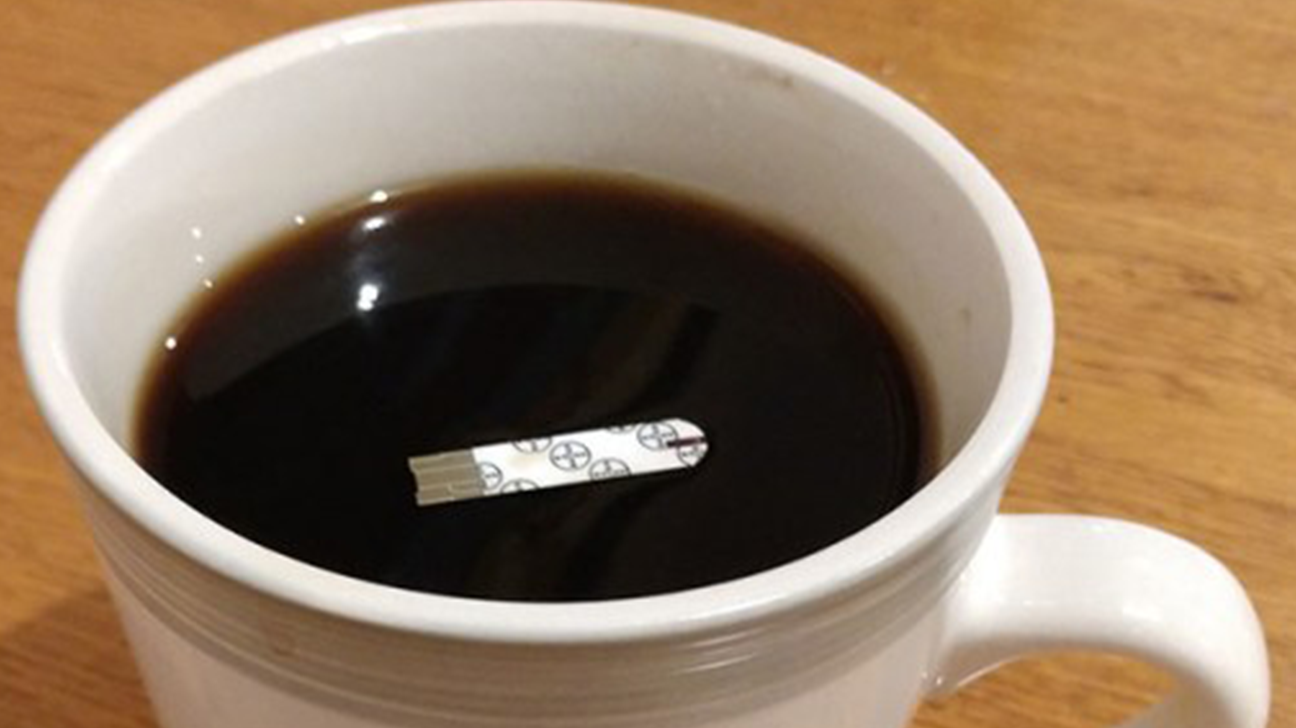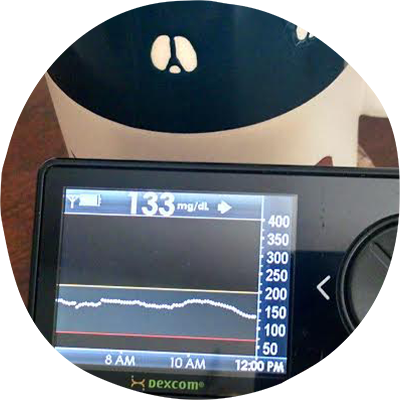The Great Coffee Experiment and Blood Sugar Effect

You might say that I take my coffee pretty seriously.
Don't even think about asking me to do anything productive before I've had at least one cup in the morning, and you'd be quite mistaken to think that's the only one I'll be enjoying as the day moves on.
Hey, coffee is just as essential for me as insulin! I jest, of course, but you get how serious I am about my java...
Yes, I've been cherishing coffee for more than two decades now since I was a teenager. For those keeping track, this obsession began about 10 years after my diagnosis with type 1 diabetes at age 5. And it corresponds with my start in the journalism and newspapering world -- those high school and college years when deadlines were calling and caffeine kept me going. (It’s a well-known fact that journalists drink the most coffee.)
I don't believe coffee impacted my blood sugars much when I was younger, but then again I didn't watch it very closely. Not until recently did I take the time to really research the coffee-blood sugar connection.
Of course, I Googled it. And who could miss all the splashy headlines on "diabetes and coffee," like a recent wave of articles about how coffee can reduce the risk of type 2 and how it affects people with diabetes in different ways? These mostly just quote the same general stats and lingo that make us want to roll our eyes and move on; they aren't the "real stories" that most of us are so hungry to find, about how coffee really does play into our daily struggles with blood sugar.
I'm finally just now making the effort to more methodically analyze this issue for myself.
The Diabetes Coffee Effect
Maybe it's a symptom of my longtime type 1, but I've never enjoyed "polluting" my coffee with cream, milk, sugar, or artificial sweetener. Uck... no, thanks! I'm a guy who likes his coffee black, which is fortunate in that I’m not tempted to add anything in my coffee that may boost my blood sugars unnecessarily.
{Fellow Coffee Lovers: If you're in need of your own cup or warm up, here's a good chance -- go on, I'll wait...}
A few years ago when I was going through a diligent diabetes monitoring phase, I wondered about coffee. So I paid a bit more attention and noticed that it seemed to raising my blood sugars some in the morning hours. But that may have been caused also by Dawn Phenomenon, making my glucose numbers rise anyhow, and/or by inaccurate carb-counting the night before.
Doing some basal testing, it eventually became clear that my sugars were rising on a “typical day,” which always included mass coffee consumption. I wasn’t sure if caffeine was causing the problem, but decided to increase my basal rates by about 50% for two or three hours in the mornings, and got to the point where I could maintain a flat line if all else was in line (IF being the operative word here!). There were also times I'd take a a couple extra units and spread them out over a few hours, and that also seemed to work.
But what if I wasn't using my insulin pump?
During one of my insulin pump hiatuses was actually the first time I noticed my blood sugars were definitely going up more when I consumed black coffee but didn't compensate with insulin. A couple of units of insulin mid-morning would usually do the trick.
Good stuff to know, for any type 1 coffee lover!
My Great Coffee Experiment of 2015
Now recently, I've been more closely tracking this Coffee Effect as it relates to my blood sugars.

For the past of couple weeks, I got serious about it, cutting down on coffee consumption to make tracking easier. And after about 10 days of CGM data analysis and coffee trial and error, I concluded my blood sugars rise as much as 50 points on a given day due to coffee.
Magically, I didn't fall over dead from coffee withdrawal (pretty amazing to me!) And rather than feel pressured to write everything down, I snapped a whole bunch of photos, with this one capturing what I saw as a trend during this experiment:
- A couple of days without any coffee while hooked up to my insulin pump: As far as I could tell, all other factors that can mess with BGs aside, I definitely didn’t rise as much as I usually do when drinking coffee.
- A few days with coffee, while pumping (two with higher basal rate; one with "non-coffee" basal): This pic shows how my glucose fared when the basal rates had coffee factored in: pretty well!
- Two days without coffee and no pump, just injections: Wow - I didn’t see any of the typical mid-to-late morning BG spikes.
- Two days with coffee, on injections (one with bolus, one without): Yep, saw a boost when there wasn't any insulin to combat the caffeine. Of course, there may have also been some Dawn Phenom at play, but I don't know for sure…
Obviously, it's pretty near impossible to control for every other factor and be able to say with 100% certainty that stress, the weather, or the dog's tail-wagging didn't play into my BG shifts. But for the most part, I think these 10 days gave me a good idea of what the Coffee Effect does to me. Caffeine makes me go up, not dramatically, but significantly.
No, this changes nothing about my coffee-drinking habits and just reinforces what I was pretty certain of before: that I need a little insulin boost when coffee's at play. And I'd much rather calculate that into my basal rates than take an extra bolus by shot, if possible.
With everything related to diabetes, Your Diabetes May Vary, and medical opinions do too; some experts claim caffeine does not affect blood sugar, but others state with authority that "caffeine makes it hard for people with diabetes to control their blood sugar."
That's why I think it's important for us PWDs (people with diabetes) to do these real-world experiments and share our results. And while we're waiting, we can grab another cup before reading through the stories PWDs share.
Sounds like healthy coffee and conversation to me!
- - - - - - - - - - - - - - - - - - - - -
Originally published at DiabetesMine

Comments